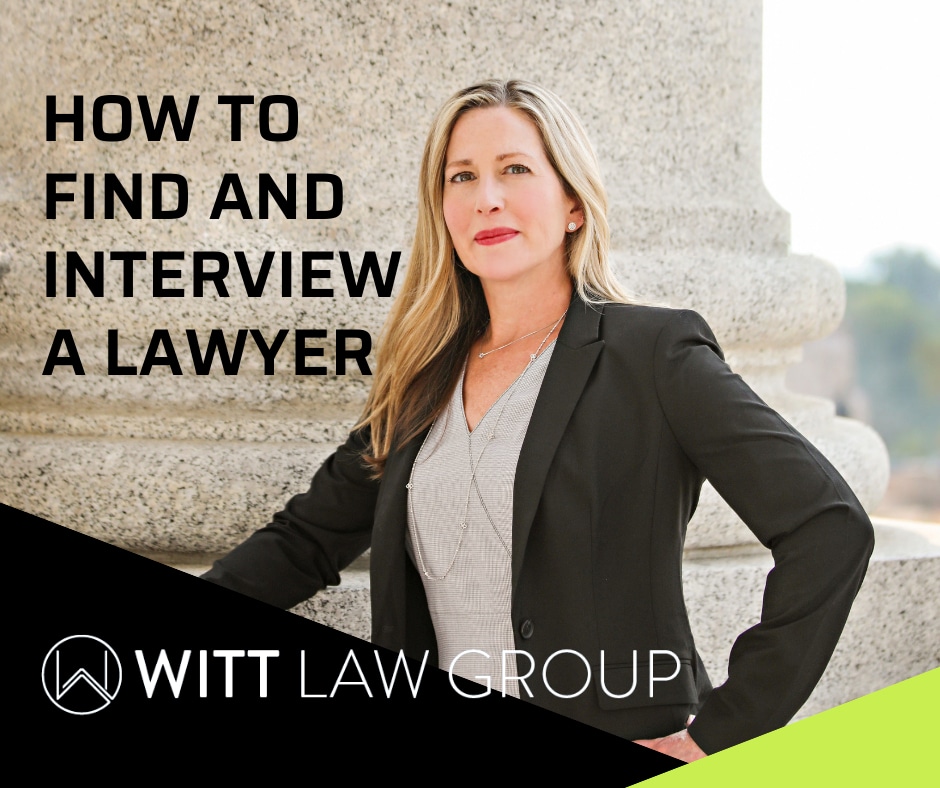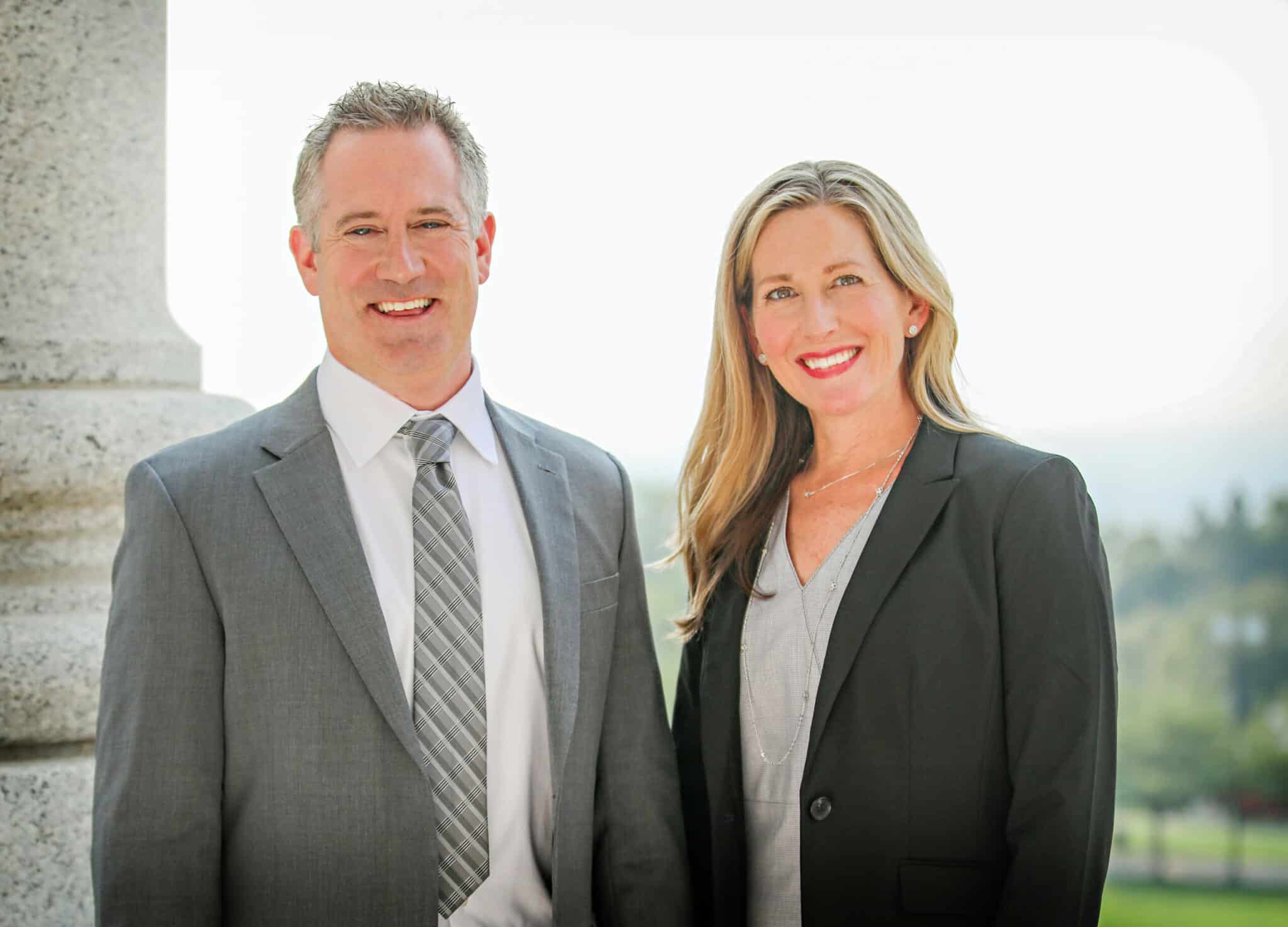
Finding a lawyer can be very intimidating. First, you have a legal issue and that is, by itself, stressful. Second, it can take some research to know what area of law is best suited to your issue. Third, once you know the area of law that pertains to your case, you still have to find the person who can help. That can all be a lot of work! Hopefully, this blog can help you in that journey.
How Do I Know What Area Of Law Pertains To My Issue?
Before you start calling around to random law offices, try to break down the primary issue in your case. For example, if you are frustrated about the amount of child support you receive, you can narrow that down to a divorce or family matter so it’s likely a family law attorney can help or point you in the right direction. Sometimes, it isn’t that easy.
You may need to narrow down a few critical facts about your case so you can start on your initial search. Suppose you have received notice that a Protection or Restraining Order has been filed against you and there is a court date set. Clearly, you may want to appear at that hearing and need legal representation to help. However, if you call our office for help, that would be a mistake. We don’t handle civil issues like protection or restraining orders. However, if you mention a No Contact Order, this is right up our alley. So, the precise words you use when calling can make a big difference as to whether the receptionist tells you to “keep calling around.” So, don’t use legal terms unless you know exactly what is involved in your matter.
Why Do Legal Terms Matter So Much When I Call For Help?
Legal words are terms of art that help lawyers and their staff decide quickly whether they can get off the phone and back to work. If you call and say, “I want a divorce,” my legal assistant knows to give you a good referral and get off the phone. Why? Well, first, she can’t give any legal advice and, second, we have nothing to offer as far as family law advice. We would be wasting your time and ours to sit on the phone.
So, when you use legal terms, be very careful you are either reading it directly from a legal document or know very clearly what that term means. Protection, Restraining, and No Contact Orders are perfect examples of misinformation that leads to getting the wrong referral or getting no help. You need to explain things like, “my neighbor is seeking a restraining order” (not domestic relationship) or “my ex-boyfriend is seeking a protection order” (domestic relationship) because if you said “after I pulled a gun on my spouse and the cops came, she is seeking a protection order,” you would be misrepresenting the facts and your issue. Since we do criminal defense, we would realize quickly that you are confused about what is heading your way—a criminal charge and a No Contact Order (although a Protection Order could be filed simultaneously in a civil matter such as in your family law case).
Just remember that facts and precise language really matter when you are trying to help the lawyer or staff determine if they can help. If you don’t know the exact terminology do your best to very simply describe the situation. Do not present your version of events. Stick to the facts. If you are fighting with your neighbor over property boundaries, don’t start with all the “trespassing” you think he is doing. That’s a lot like calling the bank because you have overdrawn your account but you start the conversation with a list of all the items you purchased that month that caused your overdraft. It is neither relevant nor helpful to anyone. You are likely to be put “on hold”…for eternity.
What NOT To Do When You Call A Law Firm
1. Don’t start with “I have a great case for you!” Sorry but that is the well-established sign in all law firms that you need to get off the call.
2. Don’t be short or rude with staff. Use some basic phone etiquette. Surprisingly, people often start a call with “get me your lawyer on the phone!” If you are a normal human, you can imagine that does not go over very well. Also, arguing with the legal assistant about whether the firm can help (or even wants your case) is also not helpful. Be polite. Be patient. Law firms are stressful work environments and you are less likely to get help or a good referral if you add to the stress level.
3. Don’t ramble. Know when to stop talking. If the lawyer says, “we don’t handle those types of cases,” accept it. Experienced lawyers are well aware of the areas of practice they want and what type of cases they want. However, lawyers aren’t always the best at telling you why they don’t want your case but it’s most likely because they are not the best fit and you should trust that. So, if you are lucky enough to be patched through to a lawyer (that is not likely), LISTEN. If the lawyer takes a call that does not pertain to her or his area of practice but wants to give a bit of advice, you should take notes. Don’t expect this but, if it happens, let the person shed some light on your issue or who is the best lawyer for your case.
4. Don’t waste time trying to garner sympathy. There is nothing worse than a person looking for a divorce attorney or referral but spends 5 minutes telling you every awful thing about some guy you don’t know, won’t meet, and don’t care about. Remember, even if you are emotional and need to vent, you aren’t hiring a friend or counselor. You need to know if the person answering the phone call is the person who can solve a very specific legal problem. Going on and on about personal problems will not work in your favor.
5. Don’t ask for advice outside of the lawyer’s expertise. If the lawyer says “I don’t know or I can’t help with that issue,” he or she can’t help. I wouldn’t ask my pediatrician to weigh in on whether I might need open heart surgery. It would be pointless to ask and probably dangerous for me to count on anything the pediatrician had to offer. If your tax attorney weighs in on your DUI case, I hope you like jail. While lawyers are supposed to know “generally” all areas of law, that means very little. So don’t call our firm and ask for tax advice or input on the federal tax code unless you’re looking forward to an audit. Experienced lawyers “stay in their lane.” (and jurisdiction!) FYI, lawyers can not talk about any legal issue in any state where they are not licensed.
6. Don’t talk philosophy or theories. Often, before a person can ask whether the law firm handles their type of issue, he or she will get into how the legal issue is ruining their life or how the laws are unfairly imposed. Since law firms are stressful and run on deadlines, rambling on about the need for legal reform is not likely to be well received by staff. And, for the record, most courts and prosecutors really don’t care whether the case will bankrupt you, cause a divorce, and cause you to lose your job and be unable to pay for your children. If you want to have a chance to fight against all that you’re losing—whether it’s medical costs in an auto accident or loss of job and family in a criminal case—you need to focus on getting legal help and not legal reform. Stay focused in asking questions as to whether a certain firm or attorney is a good fit to represent you in your legal issue.
7. Don’t talk about “how easy this case is” or that the lawyer should do it for free because a monkey could do it. I’m not sure how that is supposed to be convincing but you would be surprised how many people try this tactic. I’m waiting to see the monkey who can handle our cases and has such little overhead she can do it for free. If you can’t afford a lawyer, let the person answering the call know that right away because most receptionists or lawyers appreciate the honesty up front. If they know anyone who can take a pro bono case, you’re far more likely to get that referral from honesty rather than indicating the primate species could handle the issue.
Be Patient In Finding The Right Person For The Job
Finally, don’t expect to find the right person for the job in one phone call. The practice of law is tough and competitive. It’s also very stressful. If the person on the other end seems a little frustrated or short with you, don’t take it too personally. It might be that you should just call back on another day (try calling a busy criminal defense firm on Mondays and you’ll know what I mean). Most likely, everyone in that firm takes pride in helping solve legal problems in their practice field. While it can be hard to connect, keep trying.
We would hate to be judged by our worst or busiest days, so we try to encourage others to have a little patience with other lawyers and firms. Try to remember that attorneys often deal with people at the worst point in their lives and are fielding lots of angry or stressful calls. Most of the day can be quite combative so it can take a few minutes for a legal assistant or lawyer to decompress and get into your issue. That’s why I encourage you to put your best foot forward and consider the list above when calling. Once you “connect” with a certain a lawyer or firm, the details of your life and frustrations about your unique scenario will eventually be discussed. Like any professional relationship, it can take time to develop and create a winning strategy.
If you have a criminal defense or personal injury issue in Kitsap, Pierce, Thurston, or Jefferson counties, feel free to give our office a call to see if we can help or offer you a solid referral for an experienced attorney in your area. 360-792-1000 (call or text).

Get help now
Whether you choose to handle your case alone or engage the Witt Law Group, being informed and prepared is essential. Early involvement of an attorney can significantly impact your chances of a fair recovery, allowing you to focus on healing while we handle negotiations with insurance adjusters to secure fair compensation for your injuries.




